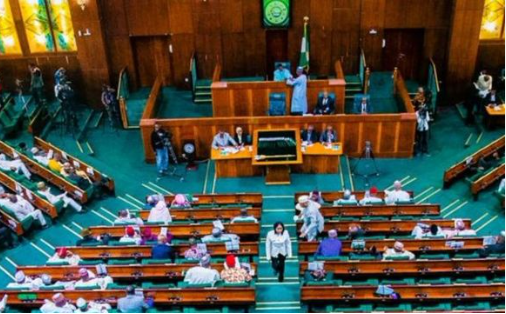The House of Representatives on Thursday passed the Medical and Dental Practitioners Act (Amendment) Bill, 2022 for second reading.
If passed and assented to by the President, Major General Muhammadu Buhari (retd), before he bows out of office on May 29, 2023, graduates in medical and dental fields will have to render compulsory five years of services within Nigeria before being granted full licence.
The bill is titled, ‘A Bill for an Act to Amend the Medical and Dental Practitioners Act, Cap. M379, Laws of the Federation of Nigeria, 2004 to Mandate Any Nigeria Trained Medical or Dental Practitioner to Practise in Nigeria for a Minimum of Five Years Before Granted a Full Licence by the Council in Order to Make Quality Health Services Available to Nigeria; and for Related Matters.’
Here are reasons why the lawmakers proposed the bill.
1. Brain drain
The sponsor of the motion, Ganiyu Johnson (APC/Lagos), said the proposed legislation was to check the mass exodus of medical professionals from the country.
After the peak of the COVID-19 pandemic, Nigeria witnessed the mass migration of its professionals to developed countries, a development that is now known in local parlance as the ‘Japa Syndrome.’
According to a study, Nigeria has the third highest number of foreign doctors working in the United Kingdom after India, and Pakistan.
Also, a 2023 health workforce support and safeguards list report released by the WHO shows that Nigeria and 36 other African countries face the most pressing health workforce challenges related to the Universal Health Coverage.
At least, 5,600 doctors have migrated to the UK in the last eight years, according to the President of the Nigerian Medical Association, Uche Rowland,
2. Quality healthcare in Nigeria
Nigeria requires a mix of 23 doctors, nurses and midwives per 10,000 population to deliver essential health services, according to the WHO
The sponsor of the bill said,
“Nigeria currently has only 24,000 licensed medical doctors available in the country, less than 10 per cent of the number needed to meet the World Health Organisation recommendation.”
He also said the bill was “in order to make quality health services available to Nigerians considering the growing trend of the Nigerian population and the current emigration rate of Nigeria trained medical and dental practitioners abroad.”
He added,
“Now, only one doctor is available to treat 30,000 patients in some Southern states, while in the North, it is one doctor to 45,000 patients.”
3. Subsidised medical, dental education.
The lawmakers argued that since the country subsidised medical and dental education for Nigerian students, it was important for them to serve the country after their training.
Johnson noted that the tuition fee for the study of Medicine in the UK is between £35,750 and £66,500 per annum and the duration of the course is four years.
Also, he said in the US, according to the National Centre for Education Statistics, the average cost of studying Medicine is between $82,000 and $104,000, aside from miscellaneous expenses which include feeding, accommodation, etc.
The lawmaker added that in Canada, the tuition fee for Medicine ranges from 52,000 CAD to 169,000CAD.
“But contrary to all these huge tuitions in the aforementioned countries, in Nigeria, the cost of Medicine in public institutions range from N40,000 to 150,000. Therefore, you will all agree with me that medical and dental education in Nigeria is seriously subsidised,” he stated.
Johnson stressed that,
“Despite this subsidy in medical and dental education, Nigeria still suffers emigration of trained medical doctors and dentists into the hands of these foreign countries, which an average Nigerian can hardly afford for medical training. The favourite destinations of migrating Nigerian medical staff are Europe, North America, and the Middle East.”
4. Overstretch of medical doctors’ workforce
“With the latest mass relocation of trained doctors in Nigeria to the UK, the doctor:patient ratio might become worse, leading to an overstretch of the already limited medical doctors workforce. This might push even more doctors to join their colleagues in a more favourable working environment, resulting in further losses to Nigeria .
“It has also been observed that foreign embassies in Nigeria, particularly those of the UK, the US and Saudi Arabia receive on a weekly basis 20 to 25 verification requests from Nigerian doctors wishing to migrate abroad.
“This translates to about 1,196 applications a year, while the Nigerian people whose resources are being used to subsidise the medical and dental education in Nigeria to train doctors and dentists still suffer from poor health services due to migration of our doctors and dentists. This is a clear cheat on the Nigerian people,” Johnson added.


